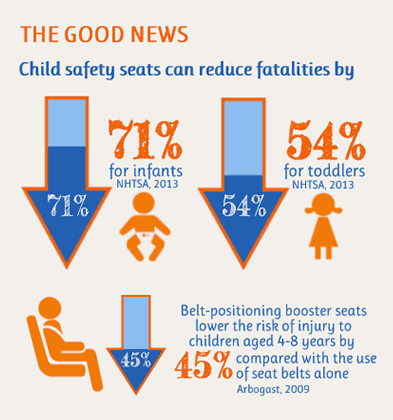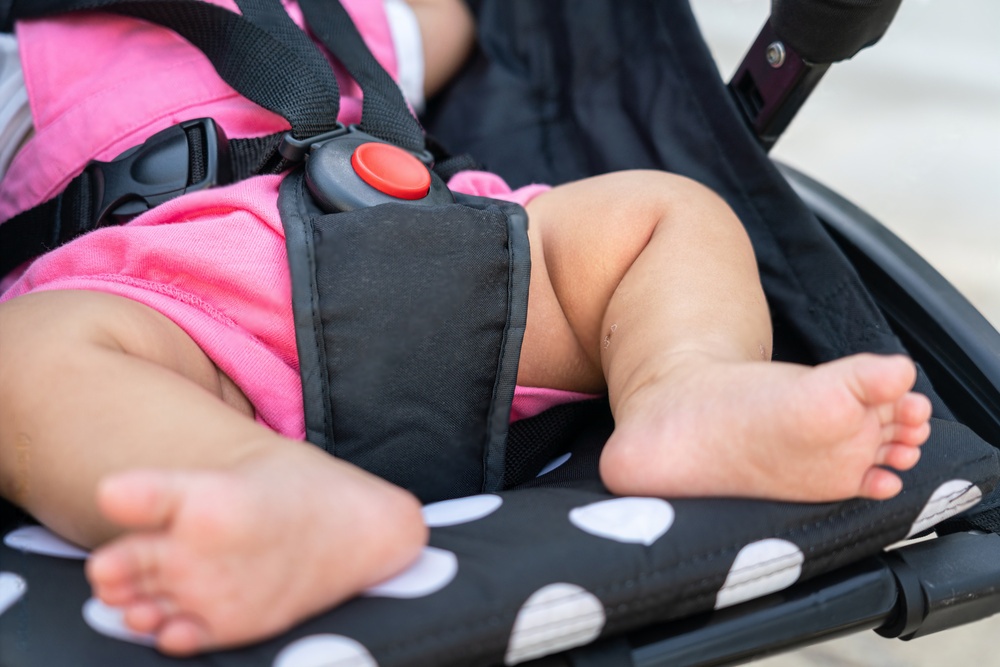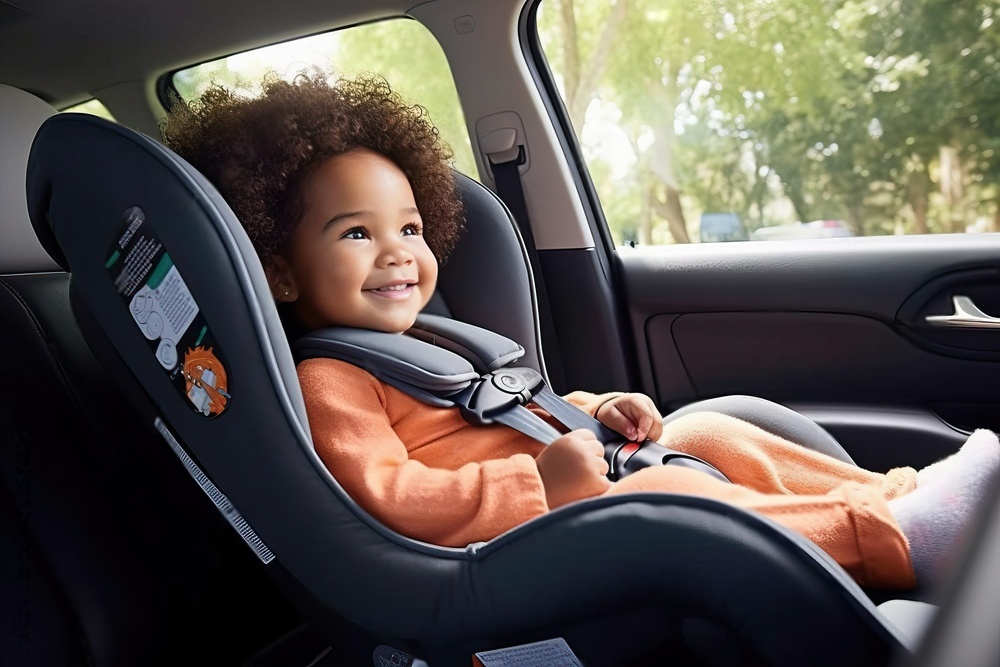Ensuring the safety of our children is a top priority for any parent or caregiver, especially when it comes to travel. Car seat recalls are a crucial aspect of this safety concern, as they directly impact the effectiveness of one of the most essential safety measures for children in vehicles.
Understanding Car Seat Recalls
Car seat recalls are not mere administrative actions but vital safety measures that directly impact the protection of children during car rides. When a car seat is recalled, it signifies a recognized safety issue that requires immediate attention and action. These recalls are initiated by manufacturers in response to identified defects or failures that could compromise the effectiveness of the car seat in protecting a child during a vehicular accident.
Understanding the significance of car seat recalls involves recognizing the potential risks associated with using a defective or compromised car seat. These risks can range from minor inconveniences to life-threatening hazards, depending on the nature of the safety issue. By comprehending the importance of addressing recalls promptly, parents and caregivers can take proactive steps to safeguard their children’s well-being while traveling in vehicles.
Statistics on Car Seat Safety
The realm of car seat safety is underscored by compelling statistics that emphasize the critical importance of proper car seat usage for protecting children during vehicular travel. These statistics paint a vivid picture of the potential risks faced by children in the absence of adequate safety measures and highlight the significant role that car seats play in mitigating these risks.
Recent data reveals that car accidents represent one of the leading causes of fatalities and injuries among children, underscoring the urgent need for effective safety interventions. However, the implementation of appropriate car seat measures can yield remarkable outcomes in terms of injury prevention and mitigation.

Studies indicate that correctly installed car seats have the potential to reduce the risk of injury by up to 71% for infants and 54% for toddlers, a testament to the efficacy of proper car seat usage in safeguarding young passengers. These statistics underscore the tangible benefits of adhering to recommended safety protocols and underscore the importance of ensuring that every child is secured in a properly installed car seat during every car journey.
Common Reasons for Car Seat Recalls
Car seat recalls are often initiated due to various factors that compromise the safety and functionality of the product. Understanding these common reasons behind car seat recalls is crucial for parents and caregivers to recognize potential safety issues and take appropriate action to address them.
One prevalent cause of car seat recalls is the discovery of defective parts within the car seat assembly. These defects can range from faulty buckles and harness systems to compromised padding or structural components. Any defect that undermines the integrity of the car seat’s design or compromises its ability to protect a child during a car accident can prompt a recall.
Additionally, violations of safety standards set forth by regulatory agencies can also lead to car seat recalls. Manufacturers are required to adhere to stringent safety guidelines to ensure that their products meet established safety thresholds. Deviations from these standards, whether intentional or unintentional, can result in recalls to rectify the non-compliance and safeguard consumers.
In some cases, design flaws or manufacturing errors may emerge during the production process, prompting recalls to address these issues before they pose a risk to consumers. These recalls are initiated as a proactive measure to prevent potential accidents or injuries resulting from the identified flaws.
The Potential Dangers of Ignoring Recalls
Disregarding car seat recalls can expose children to significant dangers and compromises their safety during car travel. It’s imperative for parents and caregivers to grasp the potential hazards associated with ignoring recall notifications and take swift action to address any safety concerns.
Continuing to use a car seat that has been subject to a recall poses serious risks to child safety, as the identified issue may compromise the seat’s ability to protect the child in the event of a car accident. Ignoring recall notices means neglecting to address known safety deficiencies, leaving children vulnerable to potential harm.
Moreover, the decision to disregard recalls can have legal ramifications for parents and caregivers. In the event of an accident or injury involving a recalled car seat, liability may fall on the caregiver who knowingly continued to use the defective product despite being aware of the safety issue.
By failing to heed recall notifications and take appropriate action, parents and caregivers not only jeopardize the safety of their children but also undermine their legal standing in the event of an incident. Therefore, it is imperative to treat recall notifications with utmost seriousness and promptly follow the recommended course of action to ensure the continued safety of children during car travel.
How to Stay Informed About Recalls
Remaining informed about car seat recalls is essential for ensuring the safety of children during car travel. There are several effective strategies that parents and caregivers can employ to stay abreast of any recalls affecting their child’s car seat.
Regularly checking for recall announcements on the manufacturer’s website or through official recall databases is one proactive approach to staying informed. Many manufacturers provide online resources where consumers can input their car seat model information to determine if any recalls have been issued for their specific product.
Another effective method is to register the car seat with the manufacturer upon purchase. By registering the product, manufacturers can directly notify consumers of any safety recalls or updates related to their car seat via email or mail. This ensures that parents receive timely information about any potential safety concerns and can take prompt action to address them.
Additionally, subscribing to newsletters or alerts from reputable safety organizations or government agencies can provide valuable updates on car seat recalls and other safety-related matters. These organizations often disseminate information about recalls and safety advisories to help parents and caregivers stay informed and take appropriate precautions.
Steps to Take If Your Car Seat Is Recalled
When a car seat is recalled, it’s crucial for parents and caregivers to take prompt and decisive action to address the safety issue and ensure the continued protection of their child during car travel. Here are the essential steps to follow if your car seat is subject to a recall:
- Contact the Manufacturer: Upon receiving notification of the recall, immediately contact the manufacturer of the car seat. The manufacturer’s contact information can typically be found in the recall notice or on their website. Inform them of your specific car seat model and inquire about the recommended course of action to address the safety issue.
- Follow Recall Instructions: Follow the instructions provided by the manufacturer regarding how to proceed with the recall. This may involve returning the car seat for repairs or replacements, or following specific safety guidelines to mitigate risks associated with the identified issue. Adhering to the manufacturer’s instructions is essential for ensuring the effectiveness and safety of the corrective measures.
- Cease Use of the Recalled Seat: Until the safety issue is addressed and the car seat is deemed safe for use, discontinue using the recalled car seat. This may require temporarily utilizing an alternative car seat or transportation method to ensure the continued safety of your child while the recall issue is resolved.
- Document Communication: Keep records of all communication with the manufacturer regarding the recall, including dates, times, and details of conversations or correspondence. This documentation may be valuable for reference purposes and can serve as proof of your compliance with the recall instructions.
- Stay Informed: Remain vigilant for any updates or additional information provided by the manufacturer regarding the recall. Manufacturers may issue further instructions or updates as the recall process progresses, and it’s essential to stay informed to ensure full compliance and the safety of your child.
The Importance of Proper Installation
Proper installation of car seats is paramount to ensure their effectiveness in protecting children during car accidents. Parents should carefully follow installation instructions provided by the manufacturer and seek professional assistance if needed.
Advancements in Car Seat Safety
Modern car seats incorporate innovative features designed to enhance child safety, such as side-impact protection and adjustable harness systems. These advancements represent significant progress in the ongoing effort to improve car seat safety standards.
Community Efforts to Promote Car Seat Safety
Collaborative efforts between community organizations and government agencies play a pivotal role in raising awareness about car seat safety and supporting families in need. Through various initiatives such as free car seat checks and educational programs, these entities strive to ensure that every child has access to the necessary resources and information to ensure their safety while traveling in vehicles.
- Free Car Seat Checks: Community organizations often host events where certified child passenger safety technicians offer free car seat checks to parents and caregivers. During these checks, technicians inspect car seats for proper installation, provide guidance on correct usage, and address any concerns or questions raised by parents. By offering this service free of charge, organizations aim to remove barriers to access and ensure that all families have the opportunity to receive expert guidance on car seat safety.
- Educational Programs: Government agencies and community organizations organize educational programs and workshops to disseminate information about car seat safety best practices. These programs cover topics such as proper installation techniques, harness adjustment, and selecting the appropriate car seat based on the child’s age, weight, and height. By equipping parents and caregivers with the knowledge and skills they need to ensure the safe transportation of their children, these programs contribute to reducing the incidence of car seat-related injuries and fatalities.
- Outreach to Underserved Communities: Efforts are made to reach underserved communities and provide them with access to car seat safety resources and support. This may involve partnering with local community centers, health clinics, or social service agencies to host outreach events or distribute educational materials in multiple languages. By addressing barriers such as language barriers or financial constraints, these initiatives aim to ensure that all families, regardless of their socioeconomic status or background, receive equitable access to car seat safety information and support.
- Advocacy and Policy Development: Community organizations and advocacy groups play a crucial role in advocating for policies and regulations that enhance car seat safety standards and promote the use of evidence-based practices. By engaging policymakers and stakeholders at the local, state, and national levels, these organizations work to strengthen laws related to child passenger safety, increase funding for car seat distribution programs, and expand access to educational resources for families.
Consumer Responsibility in Child Safety
While manufacturers play a crucial role in producing safe car seats, consumers also have a responsibility to prioritize child safety. This includes staying informed about recalls, properly installing car seats, and advocating for safer products when necessary.
The Role of Government Regulations
Government regulations play a vital role in overseeing car seat manufacturers and enforcing safety standards. By holding manufacturers accountable for compliance, regulatory bodies help ensure that car seats meet the highest safety standards.
Real-Life Stories of Car Seat Recalls
Numerous real-life incidents underscore the importance of car seat recalls in protecting children from harm. By learning from past recalls and their outcomes, parents can make more informed decisions about car seat safety.
Conclusion
Car seat recalls are not just administrative inconveniences; they are critical measures to protect the lives of our children. By staying informed, taking proactive steps, and advocating for safer products, parents can help ensure that every car ride is a safe one for their little ones.
FAQs (Frequently Asked Questions)
- What should I do if my car seat is recalled? If your car seat is recalled, contact the manufacturer immediately for instructions on how to proceed. Follow their guidance to address the safety issue promptly.
- How often should I check for car seat recalls? It’s recommended to check for car seat recalls regularly, at least every few months, to stay informed about any potential safety concerns.
- Can I continue using a car seat if it’s not recalled but has been in a minor accident? It’s best to consult the manufacturer’s guidelines in such cases. While some minor accidents may not affect the integrity of the car seat, others may warrant replacement for safety reasons.
- Are all car seat recalls serious? While not all recalls pose immediate dangers, it’s essential to take them seriously and follow the manufacturer’s instructions to address any potential safety issues.
- What are the penalties for ignoring a car seat recall? Ignoring a car seat recall can have legal consequences, and in the event of an accident, it may also compromise insurance coverage. It’s crucial to prioritize child safety and address recalls promptly.



